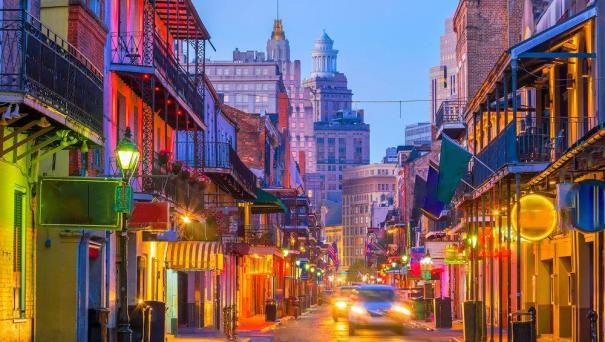About New Orleans
New Orleans is a Louisiana city on the Mississippi River, near the Gulf of Mexico. Nicknamed the "Big Easy," it's known for its round-the-clock nightlife, vibrant live-music scene and spicy, singular cuisine reflecting its history as a melting pot of French, African and American cultures. Embodying its festive spirit is Mardi Gras, the late-winter carnival famed for raucous costumed parades and public partying. The city is named after the Duke of Orleans, who reigned as Regent for Louis XV from 1715 to 1713, as it was established by French colonists and strongly influenced by their European culture. New Orleans is world-famous for its abundance of unique architectural styles which reflect the city's historical roots and multicultural heritage. The climate of New Orleans is humid subtropical (Köppen climate classification Cfa), with short, generally mild winters and hot, humid summers. The population of the city was 384,310 in 2014. New Orleans has many visitor attractions, from the world-renowned French Quarter; to St. Charles Avenue, (home of Tulane and Loyola Universities, the historic Pontchartrain Hotel, and many 19th-century mansions); to Magazine Street, with its boutique stores and antique shops.
